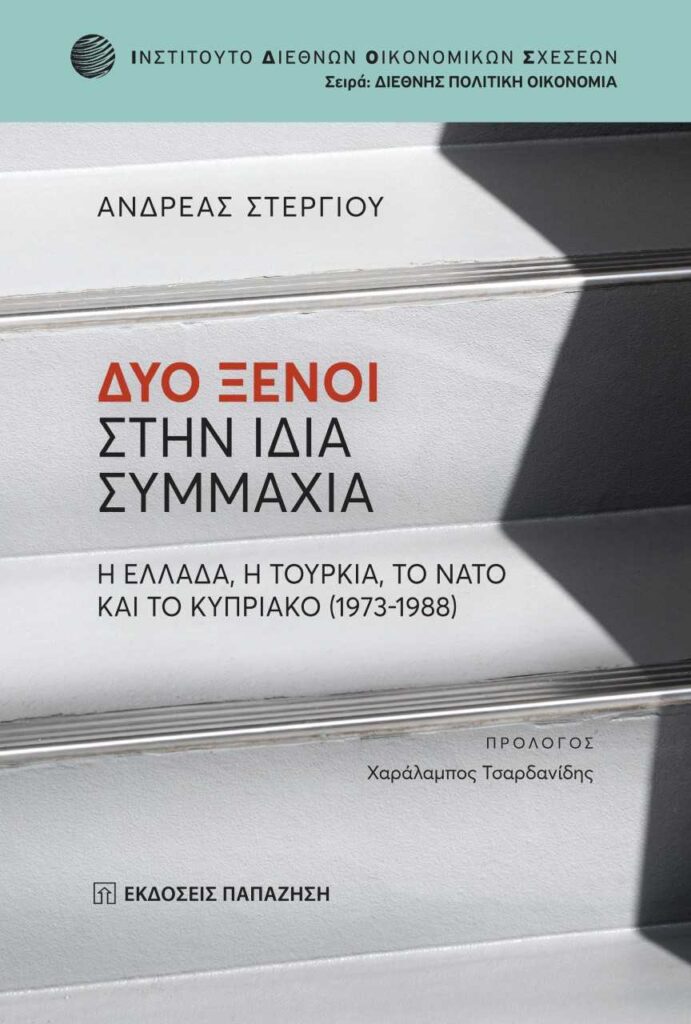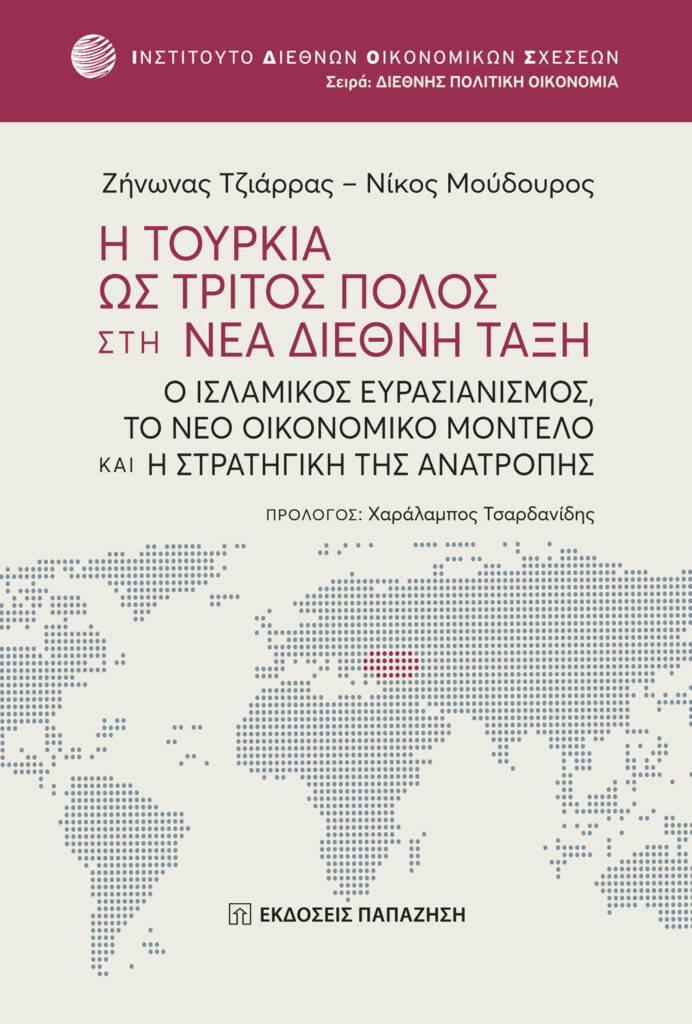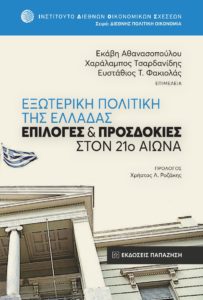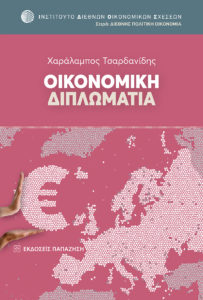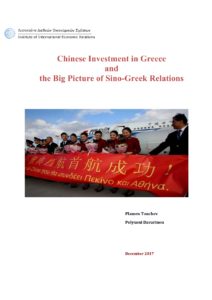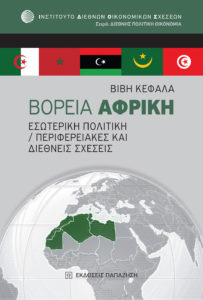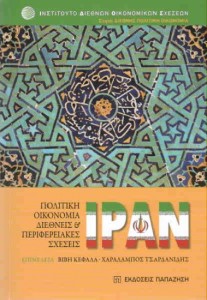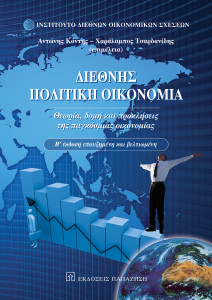
CALL FOR PAPERS & PANELS
Workshop Europe in an Uncertain World: Openness, Resilience and Vulnerabilities of Small States and Middle Powers to be held on 14-15-16 September 2023 in Athens, Greece
The workshop is organized by the Institute of International Economic Relations (IIER) (Research Programme on the Theory and Practice of International Relations) in collaboration with the following institutions:
- Neapolis University Pafos, Cyprus
- Institute for European Studies, University of Malta
- Department of Political Science and International Relations, University of the Peloponnese, Greece
- Department of International and European Studies,University of Macedonia, Greece
Small states and middle powers perform a balancing act in the global order in this era of turbulence and uncertainty. These particular types of nation-states have an important effect on multilateral negotiations, the bilateral relations between middle and grand powers and the function and effectiveness of regional cooperation schemes, like the European Union. In other words, they may be small in size, but they can be key players in global economy; in regional integration, stability and development; and in international security. The constraints they face because of their smallness affect the sectors of trade, finance and economic development; the sustainability of their environment; and their crisis management capacity and security.
Small states, emerging midsize powers and middle powers, in many cases, tend to embrace economic openness as an antidote to global uncertainty in order to foster domestic resilience, weather structural vulnerabilities and enhance their presence as “global states” in a world order that seeks to finetune its equilibria in the new norms of “slowbalization.” The resilience these kinds of states develop to economic vulnerabilities is connected to good governance, social developments, market reforms and macroeconomic stability, especially when they face economic crises, such as the 2008-9 eurozone crisis; intra-state or transnational crises, such as pandemics; or global volatility due to regional conflicts, such as the consequences of the war in Ukraine -including in relation to their respective or collective security and other defense arrangements.
With this workshop, the Institute of International Economic Relations (IIER) (Research Program on the Theory and Practice of International Relations) seeks to explore the multidimensional role of small states and (emerging) middle powers, without excluding other states in Europe (such as small states in the Western Balkans or Iceland) in order to achieve resilience building, crisis management capacity, political stability and prosperity. Some of the research questions and topics this workshop seeks to explore include, but are not limited to:
- What are the main arguments over how small states (such as Iceland, Cyprus, Malta, Estonia, Ireland, and others) and emerging middle powers that belong to the Eurozone and the European Economic Area (EEA), including Turkey and Western Balkan states, dealt with the 2008-9 Eurozone crisis, and what lessons learned could formulate national economic and social policies and EU’s governance structures in the face of the current global uncertainty that stems from energy and food insecurity; global economic volatility; and the return of grand power rivalry because of the war in Ukraine?
- What specific strategies did different European small states and middle powers adopt in order to foster state capacity and resilience in the midst of today’s economic and social turmoil? Could these strategies combined create a broader policy for crisis management and resilience building, especially for small states regardless individual particularities?
- How could a policy framework on small states and middle powers be incorporated into EU’s Global Strategy and Connectivity Strategy in the digital decade in order to assist small states in the underdeveloped and developing world and expand EU’s geopolitical footprint?
- Are the tendencies of “slowbalization” and/or “newbalization” shaping new regional orders? How could European small states and middle powers have a meaningful role in this process that informs state capacity and institutional resilience?
- The global economic, social, technological and democratic revolutions are posing acute challenges for European institutional resilience. How could small states and middle powers reshape the European continent towards a highly interconnected European society of innovation? What challenges does this pose for the EU governance structures, and how could it help the EU to enhance its geopolitical role?
- Could small states have a defining role in EU’s policies on dealing with inequalities and advancing a transformative industrial and technological revolution? How could European small states (such as Malta, Cyprus and Luxembourg) play a more meaningful role in regional security, development and inter-regional cooperation? If they do, what small states’ strategic tools enhance EU’s preventative economic-diplomacy capacity?
- With regard to small states’ foreign, security and defense policies, are there specificities or not? What is the specific role of alliance structures? What about the close vicinity of revisionist powers, such as Russia in relation to the Baltic States?
- What impact does the war in Ukraine have? What role for Europe’s small states and middle powers in the EU (Strategic Compass) and NATO (Strategic Concept)?
- What is the role of diplomacy and other foreign policy tools in small states’ and middle powers’ pursuit of national interests?
The workshop would also like to emphasize creative and novel approaches to how theory informs and transforms practice. It welcomes scholars at all stages of their career.
Important Information:
- Please submit your abstract (250-300 words) or panel proposal (four papers per panel) by Friday, June 16, 2023.
Please also include the following information: names, title/academic status, corresponding address, personal telephone number, email address, and the telephone number of a third party in case of an emergency.
- Notifications of acceptance will be sent out by Friday, June 23, 2023.
- The deadline for the submission of accepted papers and panel proposals is Friday, September 8, 2023.
*Accepted contributors who will not submit their papers by the paper submission deadline will be removed from the workshop program.
- Abstracts and panel proposals must be submitted to (cc’ing both):
- Effie Charalampaki: [email protected]
- Stella Milioti: [email protected]
Academic Coordinators:
- Prof. Charalampos Tsardanidis, Director, Institute of International Economic Relations (IIER)
- Effie Charalampaki, Head of the IIER Research Programme on the Theory and Practice of International Relations
After scholarly peer review, the organisers will publish selected papers in an edited volume or journal special issue, while other contributions will be published on the IIER website.
The workshop will be held in the premises of the Institute of International Economic Relations (IIER):
16, Panepistimiou Street, 106 72, Athens, Greece
For inquiries please contact:
Ms. Stella Milioti,
Tel: 0030-210-3620274
Fax: 0030-210-3626610
E-mails: [email protected]
PARTICIPATION FEES AND EARLY-BIRD REGISTRATION DATES:
Until 1 September, 2023: 150 euros per person
After 1 September, 2023: 225 euros per person
Fees will cover papers in electronic form, two buffet lunches and a reception.
- Bank transfer: Syndesmos AE & EPE
National Bank of Greece IBAN: 3001100800000008048072196
BIC: ETHNGRA
Important Dates:
- 16 June, 2023: Paper and panel proposals submission deadline
- 23 June, 2023: Notification of acceptance
- 1 September, 2023: Deadline for early bird registration (fee: 150 euros) via bank transfer
- 8 September, 2023: Paper submission deadline
- 14–15–16 September, 2023: Workshop dates
Download the ABSTRACT FORM here


